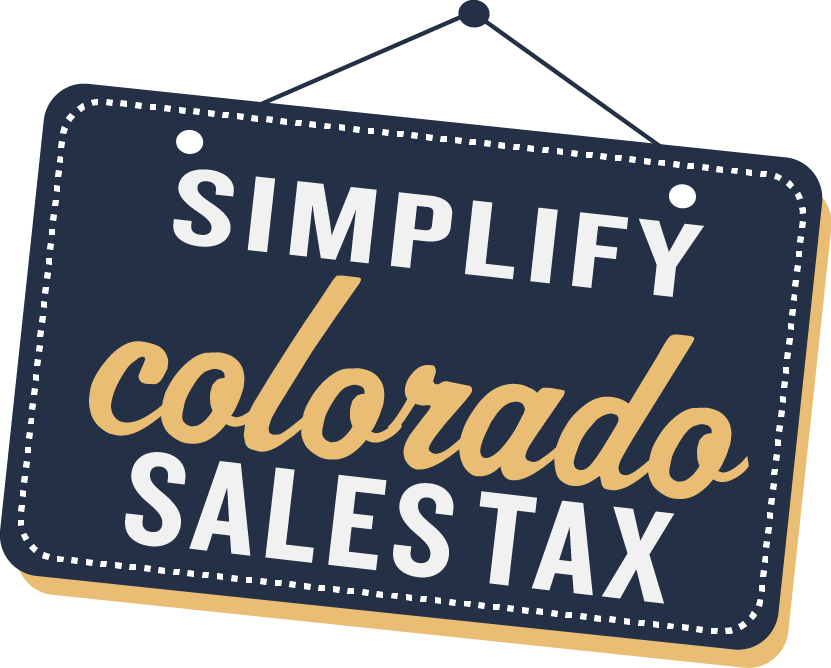Owner of Churchill Estate Sales, based in Lakewood
Cindy Churchill, 57, owns a small business in Lakewood through which she helps facilitate estate sales. She is the one you’ll see sitting behind a card table counting your change when you buy something at an estate sale. When someone dies or moves into assisted living, she assists caregivers and executors in taking care of the unclaimed possessions by selling, donating, or disposing of everything left behind.
Churchill operated her business for a decade with no idea that she was supposed to be collecting sales tax. No one in her field was collecting sales tax; it remains a gray area in the tax law and they honestly didn't think they were supposed to collect it. Churchill would have happily collected the sales tax had there been a clear case to do so.
Just to be certain, Churchill once attended an information seminar put on by the state of Colorado about how to collect and pay sales tax. She asked where she fit in to the requirements. She was told that she was classified as a roving vendor who was not required to collect sales tax. The answer was a bit muddy, but Churchill just went on with business as usual.
Then in 2012, Churchill received a notice in the mail from the Colorado Department of Revenue that she owed $287,000 for unpaid sales tax dating back eight years, plus interest and fees. She was shocked.
When she showed up for her appointment with the auditor, everything seemed off. They met out in the open at a public library; the auditor had not reserved a private space. The auditor asked for Churchill's business and personal tax returns for the past two years. Churchill had brought them with her and, flustered, turned them over. The auditor offered no written documentation of receiving such personal information, nor did she provide an explanation of what the audit process would entail.
Furthermore, when Churchill asked why she was singled out for the audit, the auditor replied that Churchill lived the closest to the auditor’s home in the mountains, so choosing her would save drive time. When Churchill asked how far back an audit was legally allowed to go, the auditor did not give an answer. There was nothing in writing about the audit process that the auditor could point her to. Nor could the auditor ever point to any Colorado statute that listed estate sales as subject to sales tax collection rules.
When the auditor asked for Churchill’s banking information at the second meeting, she declined to turn that over until she had spoken with a lawyer.
Churchill felt panicked at the thought of potentially losing her house, her savings, and her personal assets to pay the $287,000 fee. She became physically sick from the fear and stress of what would happen to her small business and her personal life.
She called attorney Bruce Fowler of the Denver-based law firm Fairfield and Woods PC. An expert in Colorado tax law, Fowler agreed that Churchill’s sales tax responsibilities were unclear, and that the auditor’s claims were not properly substantiated. He helped Churchill navigate the rest of the audit process.
Churchill and Fowler would have loved to appeal to the district court for an independent hearing. But in order to do so, Churchill would have had to pay the full $287,000, or post bond for double that amount. That barrier simply put it out of the question. Churchill wondered what happened to due process in her country. She thought anybody was allowed to go to court. She says that’s when she lost faith in her justice system. But she couldn't appeal because it was far too much money, there was just no way.
Churchill appealed through the only viable channel – the Department of Revenue itself. Churchill's appeal was assigned to a tax conferee, an individual employed by the same organization as the original auditor – the Department of Revenue. She and Fowler had to wait for four months before meeting with the tax conferee. Churchill knew this new tax conferee and the original auditor were colleagues so she felt uncomfortable complaining about her initial experience.
Ultimately, Churchill took the only option she had and agreed to settle with the tax conferee. When the final bill came, the conferee offered to settle with Churchill for $11,000. Relieved at the thought of a more doable amount, Churchill paid the $11,000 fee, plus her lawyer’s fees of about $7,500. Though she saved her business, Churchill lost countless hours of work, her physical health, and nearly a year’s worth of income in the process.
Churchill wants to work for change to spare her fellow business owners the nightmare that she endured.
Click here to read more Real Stories.

